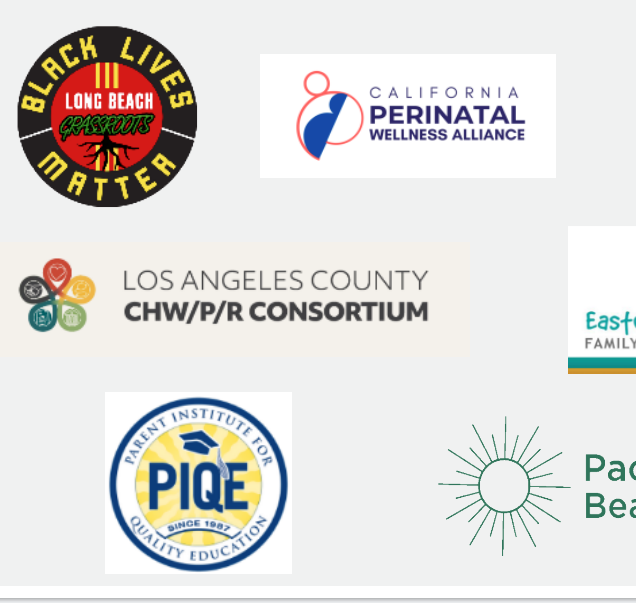LOS ANGELES – Governor Jerry Brown’s proposed budget for FY 2018-19 takes a significant step forward in prioritizing children from birth to age 5. In this third and final year of promised multi-year funding, Governor Brown fulfills his commitment to expand access and availability of child care and early learning opportunities for young children, and introduced funding for additional services to further support families.
“A budget is a statement of values and priorities. Our shared priority across the state must be the wellbeing of our youngest children,” said Kim Belshé, executive director of First 5 LA, an independent county agency that advocates on behalf of young children and their parents. “Tomorrow depends on the decisions we make today. We thank Governor Brown for prioritizing the programs and services that support preschool-aged children and their families, and applaud his inclusion of family strengthening home visiting services.”
The January budget proposes $190.3 billion spending plan and builds upon past investments to support families, which include:
 An increase of 2,959 slots for full-day state preschool, beginning April 1, 2018
An increase of 2,959 slots for full-day state preschool, beginning April 1, 2018- An increase of the reimbursement rate for providers that contract directly with the Department of Education, by approximately 2.8 percent and a proposal to make permanent the temporary hold harmless to the 2016 Regional Market Reimbursement Rate for providers accepting vouchers
- An increase of $120 million to establish a fully online community college that provides scheduling flexibility and more accessible learning options for the child developmental workforce
- $1.3 billion of Prop 56 tobacco tax revenue increase for 2018-19 to be used to expand
Medi-Cal and Denti-Cal services, including increased provider reimbursement rates
The budget proposal also outlines the creation of new programs, which include:
- $26.7 million for a Home Visiting Initiative pilot program through 2021 to help parents in the CALWorks program reach self-sufficiency by improving family engagement practices, supporting healthy development of young children and preparing for employment
- The Inclusive Early Education Expansion Program, providing $167 million one-time funding to increase the availability of early care and education for children prenatal to 5, especially low-income children and children with exceptional needs.
Belshé noted the proposed budget takes an important step in prioritizing funding for multiple supports for young children, from pre-and-post natal support offered through home visiting, to health coverage, to quality early learning. First 5 LA is committed to helping California’s leaders prioritize funding that supports early childhood development.
Over the past 20 years, much has been learned about early childhood development. Ninety percent of a child’s brain is developed by age 5, yet policymakers have not prioritized investment for this critical stage of life. California’s families still face significant challenges. For example, 1 out of every five children in California live in poverty, and in L.A. County the child poverty rate is even higher at more than 28%. Parents with two children may pay nearly half their wages for child care in Los Angeles County, and statewide more than 1.2 million children do not receive the subsidized child care services for which they are eligible.
“We’ve all heard ‘as California goes, so goes the nation.’ At First 5 LA, we believe as kids’ wellbeing goes, so goes the state,” Belshé continued. “We look forward to working with the Legislature and the Administration to prioritize investment in the full prenatal to age 5 continuum of services as they continue to craft the budget. We can’t afford not to. When we invest in the first five years of a child’s life, we can change a child’s future.”
###
ABOUT THE STATE BUDGET PROCESS
The State Constitution requires the Governor submit a budget to the Legislature by January 10. Budget subcommittees in the State Assembly and State Senate will review the Governor’s proposed budget and begin to craft their versions of the annual spending plan.
The Legislature has the authority to approve, modify, or reject the Governor’s proposals, add new spending or make other changes that substantially revise the budget as proposed by the Governor. The Legislature typically waits for the May Revision budget update before final budget decisions are made on major programs such as Education, Corrections, and Health and Human Services.
The May Revision to the Governor’s Budget consists of an update to the Governor’s economic and revenue outlook and revises, supplements, or withdraws the policy initiatives included in the Governor’s budget proposal from January.
The Legislature must pass a budget bill for the upcoming fiscal year by midnight on June 15. The Governor has until June 30 to sign the budget bill into law.
ABOUT EARLY CARE AND EDUCATION IN CALIFORNIA
- 90 percent of brain development happens in the first five years of life
- California has nearly 1.5 million babies and toddlers, according to Kids Count Data, 2016
- According to a Choose Children 2018 survey, 87 percent of voters polled said the governor should prioritize early childhood education
- Fewer than 1 in 3 [28.5%] young children in California receive timely developmental screenings
- California ranks 40th in the nation in its efforts to support its youngest children
- In addition to preschool and child care, high-quality home visiting programs, like First 5 LA’s Welcome Baby program, can increase children’s school readiness, improve child health and development, reduce child abuse and neglect, and enhance parents’ abilities to support healthy cognitive, language, social-emotional, and physical development
- Parents with two children may pay nearly half their wages for child care in Los Angeles County, according to a March 2017 report that explores the resources and gaps in the early care and education system within the county.




